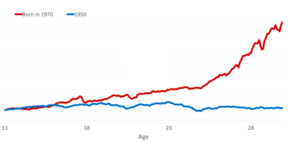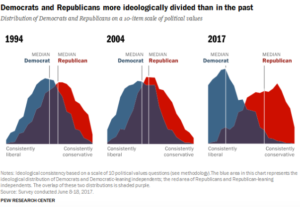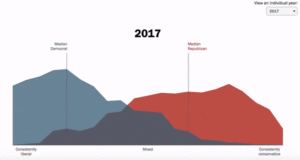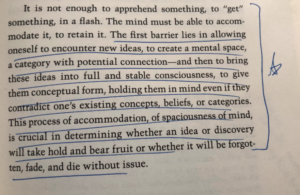Most of you know by now that Datorama (the software company where I work) was recently acquired by Salesforce. The exact value of the deal was not disclosed, but the internet will peg it somewhere between $800 and $850 million. Whatever the exact amount, it’s a pretty remarkable outcome after only 6 years in business. I joined about 3.5 years ago and feel incredibly fortunate to have been able to partake.
I’ve been thinking about this milestone for the last few weeks and thought I’d share a few musings.
It’s all about the people
This is a huge cliche. But the thing about cliches is that they become cliches because they’re true. There are two specific things about the people at Datorama that come to mind when I say “it’s all about the people.”
First, it’s so much fun to work with A players. It’s easy to grind and work late nights when you’re in the trenches with A players. You know, without question, that they are giving just as much, if not more. You never have to worry about their level of preparation. Their competence, desire, passion, and commitment are sure things.
Second, A players stick together. Of the first 100 people (I was around #40), I’d estimate that higher than 50% previously worked with one of the founders or early employees at a previous company or spent time together in the Israel Defense Forces. Because real A players are so hard to find, you keep them close once you find them. I can safely say that if our founders start another company together in the future, I’d have to seriously consider joining them for round 2.
Frugality
Our founders and management team are incredibly frugal. We never spent much on advertising or sponsoring events. The snacks in our office don’t compete with other Silicon Valley kitchens. We’ve always subleased out empty seats in our offices, that is, when we weren’t sublease tenants ourselves. We maintain strong unit economics. We hire responsibly.
Startups are hard
I think the frugality has something to do with a recognition about how hard it is to do what we did. We count our lucky stars every day for having come as far as we’ve come, and we are by no means guaranteed continued success. As such, financial responsibility is a must.
Further, 0 to however many millions in 6 years is 🍌! But it didn’t always feel like that on the inside. We had quarters when revenue targets were missed. We had periods of increasing churn. We lost tons of deals.
Even many crazy unicorns out there don’t have purely “up and to the right” stories. Slack was founded via a pivot from a failed gaming company. Airbnb came from the founders needing extra cash to pay rent. When they launched out SXSW, they got 2 bookings. Then they apparently lived on cereal while being turned down by a series of investors, before finally being accepted into Y Combinator.
Basically every single startup will face challenging times. It’s part of the journey.
Tailwinds
Because things are so hard, I find that it’s best to pick companies with tailwinds. I found out about Datorama via a chance email from a recruiter. Complete luck. But when I met with the VP of sales and saw the platform, I immediately recognized tailwinds.
The ways to advertise online are too numerous to count. There’s an investment bank called Luma Partners that releases a market map of all of the different companies involved in digital advertising. The map went from about 100 logos 8 years ago to having over 7,000 companies now. Thus the challenge facing people trying to reach an audience online has gotten exponentially harder. Thus, I felt fairly confident that the need for a platform to deal with all of the resulting data would increase over time, and at a pretty healthy clip.
Additionally, many of the early customers were some of the largest and most complex advertising organizations on the planet.
So if you’re planning to take a bet on an early stage company, looking for tailwinds seems prudent.
The why
Lastly, and perhaps most importantly, there needs to be a why if you’re planning to give so much of yourself for something. And I’m not talking about the highfalutin “what impact am I having on the world” type of why. That’s all good and well, but I’m talking about the more pragmatic type of why. For me, it comes down to two things.
I’m a fan of learning. And there’s no better place to learn than a high growth technology company. As a team and an individual, you’re constantly forced outside your comfort zone and it’s learn & adapt or die.
Further, I hope to build and lead an important technology company of my own in the not too distant future (the wheels may or may not be in motion as we speak). So I am being a sponge to everything happening around me and what it takes to scale a company, hire incredible people, iterate quickly, and the like.
So that’s all I have for you. And to be clear, all the credit goes to our founding team and all the thanks to our customers for placing their trust in us. But hopefully you’ll find these thoughts somewhat helpful.

















